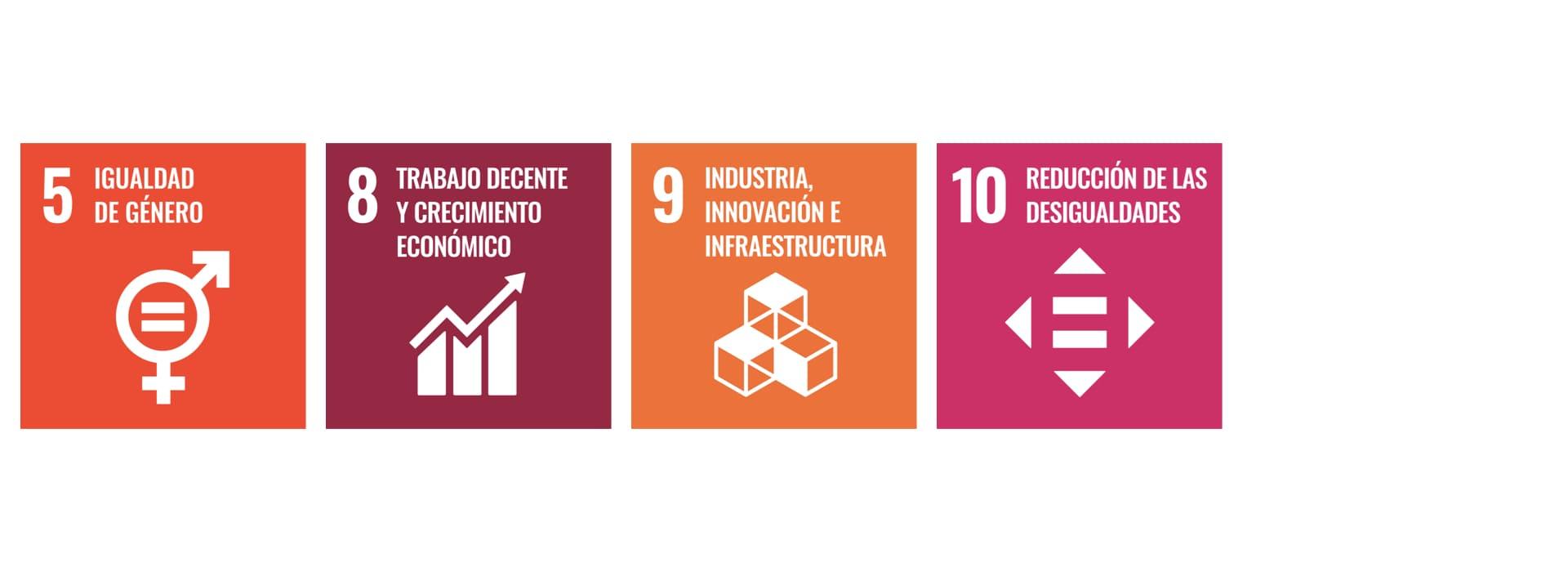
- About UPF-BSM
- Programs
- Faculty and research
- Companies and Organizations
- News & Events
Entrepreneurship is for women too
7 Marzo - 2022
Susana Domingo
Director of the Academic Area of Strategy & Entrepreneurship
Director of the Executive MBA
__
According to the World Bank, the human population is almost 50/50 balanced between men and women. It would seem, then, that the world is well distributed. That, in fairness, there is parity in all areas of life and that gender equality is a reality. But the data reflect a different reality, as do the movements that are still fighting for equality, which is still far from being true.
Only 4.7% of women are entrepreneurs in Spain, and 6.3% in Europe. This reality means that women drive only 20% of start-ups
So, what do the data on equality in the field of entrepreneurship tell us? Well, only 4.7% of women are entrepreneurs in Spain and 6.3% in Europe. This reality means that women drive only 20% of start-ups and, moreover, this figure has been stagnating for years. Thus, the data also show that entrepreneurship, like many other human activities, is far from gender equality. Not only at the local level, but also at the European level.
Starting from the initial data, showing that the world is –numerically– equally divided between men and women, what are the reasons why the figures in entrepreneurship are so disparate?
Lack of role models
Less presence of women in the areas of knowledge called STEM (Science, Technology, Engineering and Mathematics). The world's leading figures in this sector, such as Steve Jobs, Bill Gates, Mark Zuckerberg and Elon Musk, are men who have received a great deal of media attention, while Estée Lauder is more of a brand name, but not because of the entrepreneurial woman behind her, who in the 1940s created and empire under her name that is still going strong today. A situation that is also experienced with Coco Chanel or Carolina Herrera, who are better known for their designs than for their entrepreneurship. Oprah Winfrey, recognised as an exceptional journalist, but not as the founder and manager of a great media empire. Everyone knows the Huffington Post, but no one knows the founder, Arianna Huffington.
Fortunately, in recent years, we have seen an increase in the visibility in the media of success stories featuring women: Carme Ruscalleda, chef; Mar Alarcón, founder of Social Car; Carlota Pi, founder of Hola Luz, etc.
Constantly challenged
Making it even more difficult are cultural aspects such as the questioning of women's success in certain activities while men's successes are loudly celebrated, as Eli Abad, founder of Between Technology, explained during the session "Women's Entrepreneurship", organised by the UPF Barcelona School of Management. The fact that boys are raised to be brave and dominant and girls are raised to like and please does nothing to close the gender gap in the sector.
Several studies indicate that women are more risk averse and therefore take more factors into consideration when making decisions. They avoid recklessness and think more about the consequences than men
Women's greater dedication to housework work against their chances of entrepreneurship –simply because they prioritise their family's well-being over their own professional concerns– while men do not feel obliged to do so, in many cases. This means that women have less time to be able to engage in economic activity and are inclined to accept jobs based on their timetable rather than their vocation or ambition. In addition, studies indicate that women, when they do start a business, often do so out of necessity rather than out of vocation.
The weight of stereotypes
There is a tendency to associate female entrepreneurship with businesses with low technological intensity and linked to fashion and social impact. Of course, these activities are not criticisable by their nature, quite the contrary, although they contribute to the perpetuation of a stereotype that should be overcome. However, in recent years, we have seen a greater presence of women in traditionally male sectors such as fintech, health (digital health, biotech, sex tech) and edtech.
With regard to investors, venture capital funds seem to show more sensitivity to gender issues, although it is still insufficient. In 2020, only 10% of Business Angels in Catalonia were women.
Although female entrepreneurship tends to be associated with business with low technological intensity, in recent years we have seen more women in sectors such as fintech, health and edtech
Monica Dodi, after working for many years as an executive in large US multinationals (Warner Bros and MTV), aware of this great inequality, led the creation of Women's Venture Capital Fund, a venture capital investment firm that invested solely in business projects driven by teams with diversity of gender, origin and ethnicity. In this sense, another recent initiative is a non-profit association founded by women, WA4STEM (Women Angels for STEM), aimed at supporting entrepreneurial projects driven by women in the STEM field.
